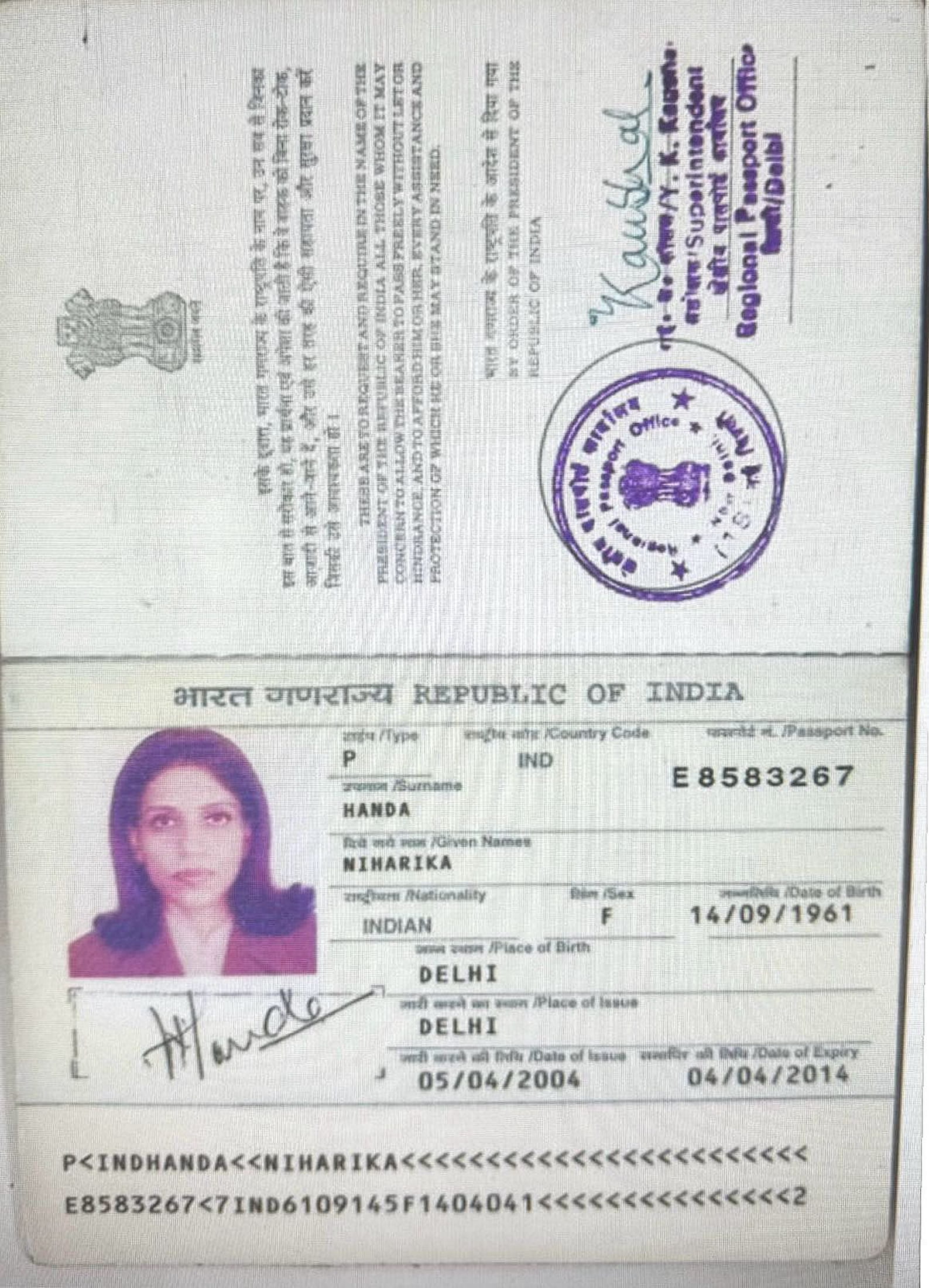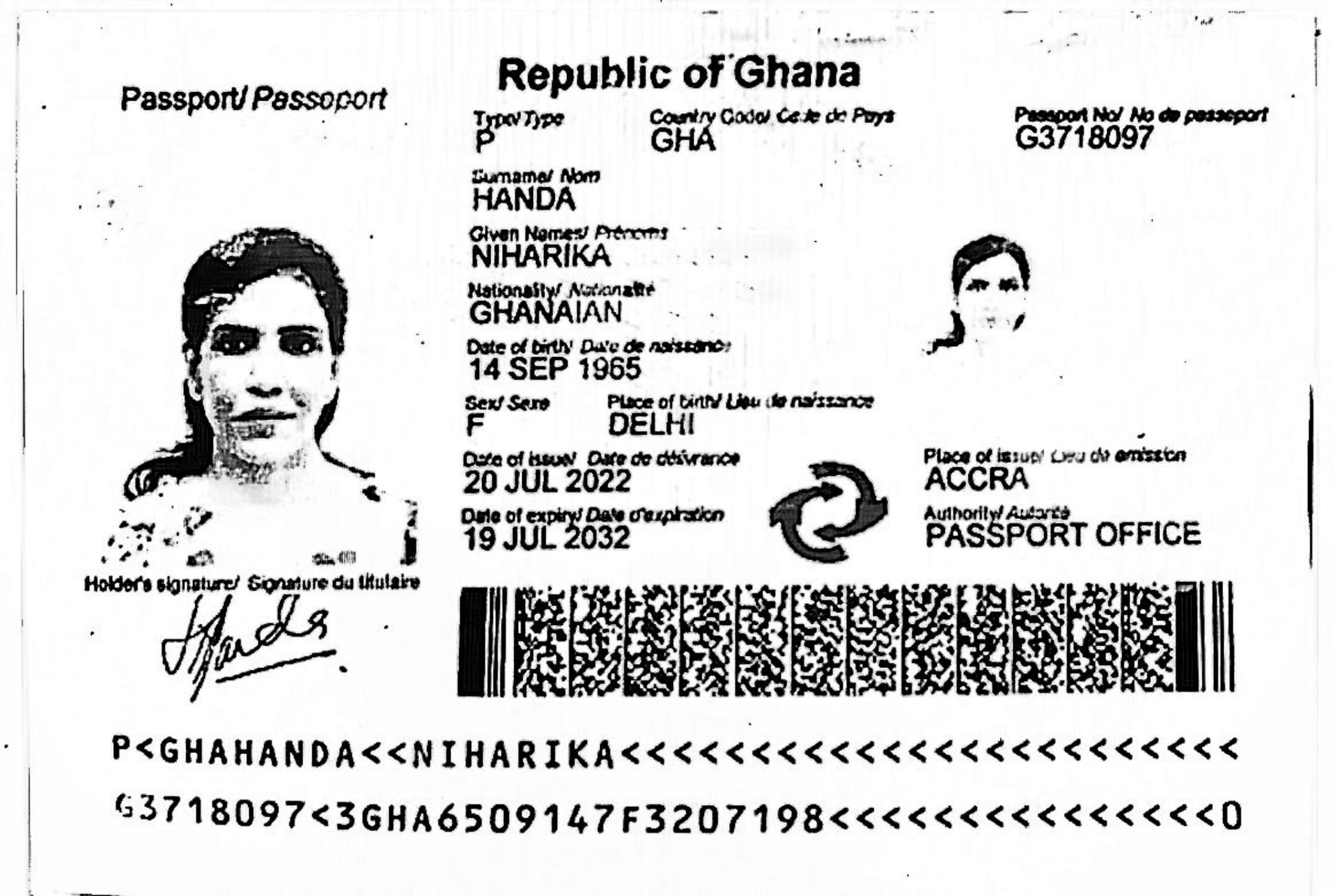- Stolen citizenship: How a fugitive exploited Ghana’s passport and duped businesses
In August 2021, a Delhi District Court declared Ms. Niharika Handa a Proclaimed Offender. Facing 14 non-bailable arrest warrants for fraud, she was ordered to answer charges of cheating and financial deception. Instead of going to court to face justice, she vanished.
Just eleven months later, Ms Niharika Handa resurfaced in Ghana along with her son Punar Vasu Handa – not as a fugitive, but as a newly minted citizen.
How she obtained Ghanaian documents remains a mystery. Citizenship laws require seven years of continuous residence and strict background checks. Yet, records show Ms. Niharika Handa received her Ghanaian passport in 2022, along with her son Punar Vasu Handa, who himself had pending business court cases in India and Dubai.
Investigators say Ms. Niharika Handa falsified her date of birth, changing it from 1961 to 1965. With this new identity, she obtained visas to the UK, UAE, and Schengen countries, raising serious questions about the integrity of Ghana’s citizenship vetting process.
“Citizenship is more than a document. It is the state’s solemn word of protection. If stolen, it damages Ghana’s reputation,” one security source declared.
Soon after establishing herself in Accra, Ms. Handa partnered with Mr. Amar Deep Singh Hari, the long-serving technology entrepreneur and philanthropist behind IPMC. Together, they co-founded Gold Crest Refinery, a prominent player in Ghana’s gold sector.
But according to Mr. Amar Deep Singh Hari, the partnership was a trap. Ms. Niharika Handa and her son allegedly siphoned millions of dollars before fleeing abroad and turning the tables by accusing him of trespassing on his own offices, hoarding gold, and theft.
National Security officers raided Mr. Hari’s premises in response to these claims. They found nothing.
“Niharika Handa and Vasu Handa used Mr. Amar Deep Hari’s reputation to conceal their questionable past,” a source close to the IPMC chairman said.
The Niharika Handa and Vasu Handa case appears to follow a clear strategy, one reminiscent of “419-style” scams but executed on a global scale. Intelligence analysts say the modus operandi of such fraudsters involves relocation to new jurisdictions after defrauding businesses elsewhere, followed by the establishment of residence in elite communities such as Trassaco Valley in Accra, hosting lavish parties to cultivate networks and then partnering with respected business leaders to pass background checks and gain credibility. These associations are then leveraged to secure loans, attract investors, and open accounts, before moving on.
This strategy, analysts say, allows fraudsters to cloak themselves in the respectability of their associates while escaping the shadow of past crimes.
In the UK, Ms. Niharika Handa has reinvented herself yet again. This time, she is calling herself Niharika Ajay Handa. Company registry documents show her as director of Rika Pure Gold Limited and three other ventures, using Ghanaian identity papers.
Security experts warn that her ability to morph identities across continents demonstrates the vulnerability of global regulatory systems. “If she can pass as Ghanaian, what stops others with more sinister motives like terrorists, spies, or money launderers, from doing the same?” one source asked, adding that “Ghana risks becoming a haven for fugitives who see its immigration system as full of loopholes to be exploited for criminal gain.”
The case is currently under investigation by the Economic Fraud Office of the Criminal Investigations Department (CID).











How did she obtain a Ghanaian citizenship and passport? Those who helped her must be investigated, arrested and prosecuted. They’re complicit in her crimes.